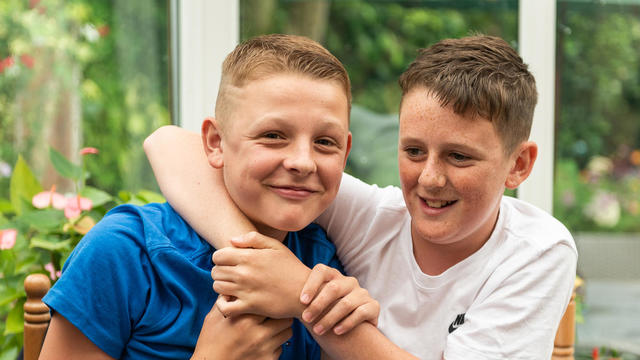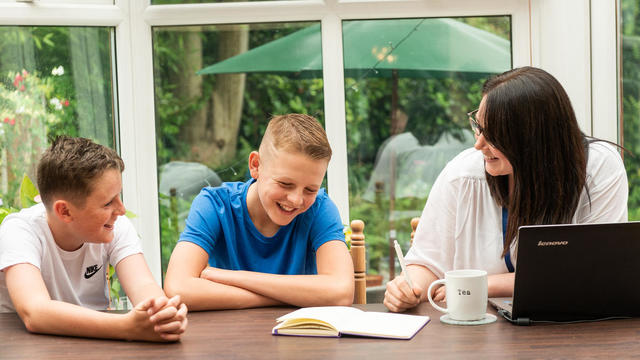Our Response to the Pathways to Work Green Paper
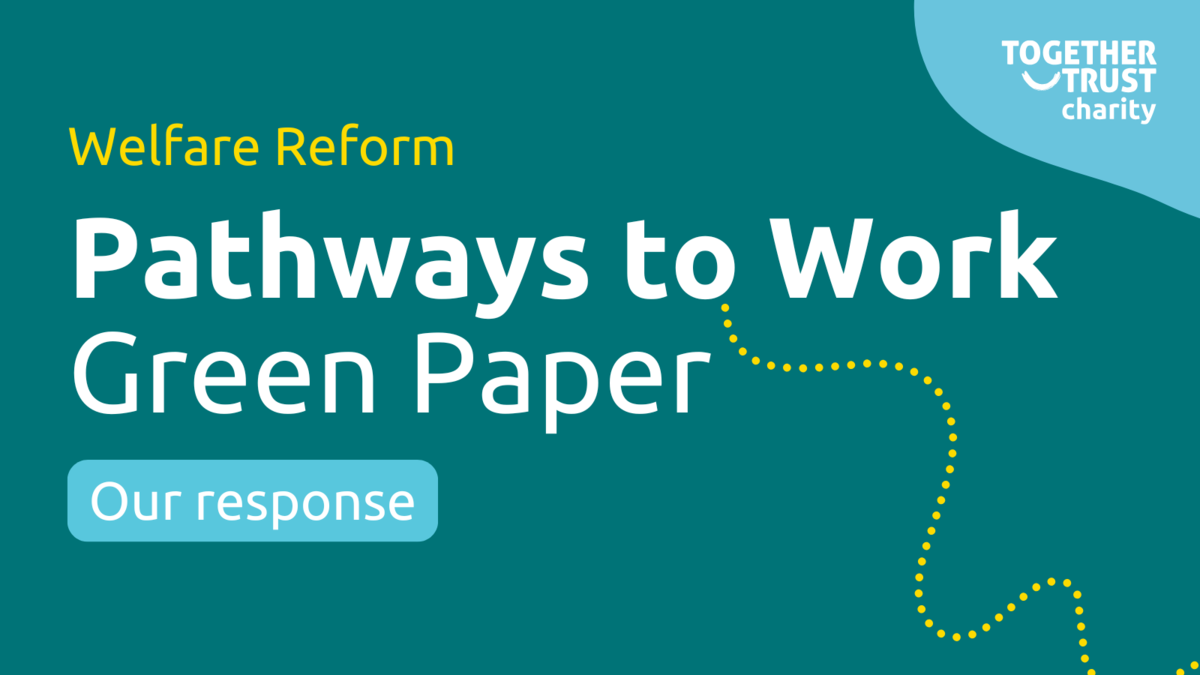
This spring, the Government launched a consultation on ‘Pathways to Work: Reforming Benefits and Support to Get Britain Working.’ The proposals put forward will fundamentally reshape the welfare system, particularly for disabled people, young people, and carers.
At Together Trust, we have submitted a comprehensive response shaped by evidence from our services, survey data from the parents and carers of the young people we support, and research. We are deeply concerned as the proposals as they stand will deepen poverty and increase inequality in the UK.
We’ve summarised our response below, but you can read our full response here.
Reform should never increase poverty
It is deeply concerning that such a significant number of people are expected to lose their PIP due to the new requirement to score at least four points on a single daily living activity.
It is challenging to offer practical suggestions for mitigating this impact, as many individuals will be pushed into poverty as a direct result of these changes. The New Economics Foundation (2025) estimates that the likely cumulative impact will result in around 340,000 more people falling into poverty. Given this, it is reasonable to anticipate severe consequences for social and mental health across the UK.
We surveyed parents and carers of young people with special educational needs and disabilities (SEND) who access our services. We asked, “What pressures do you believe people using our services are currently experiencing?”
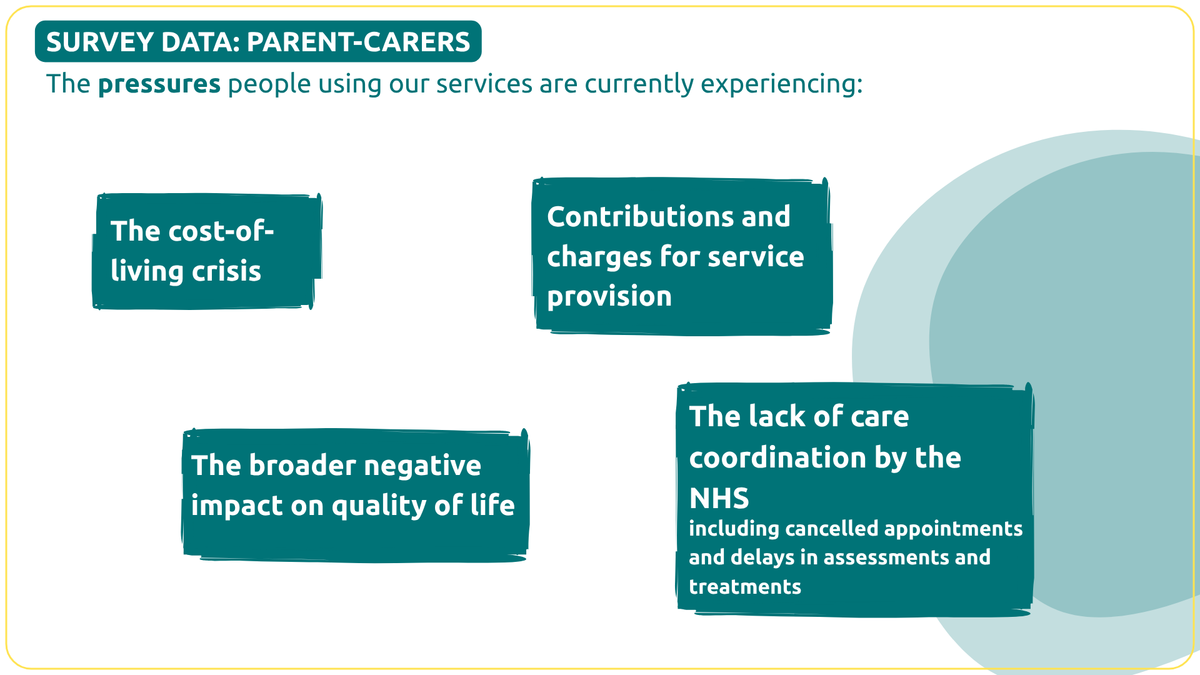
There are very few practical mechanisms in place to support those who may lose their entitlements. These challenges are already having a significant impact on young disabled people before any further benefit reductions are implemented. Therefore, any support for those losing benefits must start by addressing the existing issues they are facing.
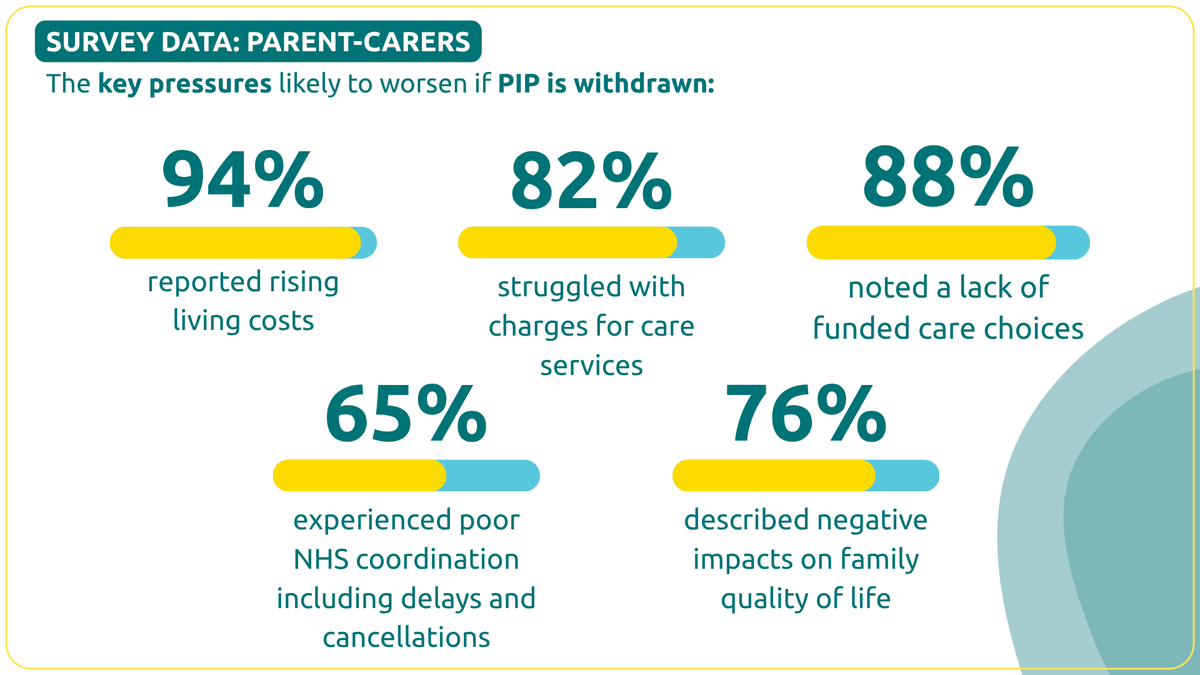
We strongly urge the Government to pause the proposed changes to PIP until a full and transparent impact assessment has been completed. The assessment should focus on the effects of poverty, mental health, and inequality. We also recommend raising Universal Credit by £20 per week and implementing the Essentials Guarantee to provide a minimum level of security for households.
The increase in claimants for mental health reflects wider society
The Government’s Welfare Reform press release highlights a significant rise in PIP claims since the COVID-19 pandemic. Much of this increase is attributed to a rise in the number of people citing anxiety and depression as their primary condition.
While these figures are indeed significant, they should not be viewed solely as an increase in benefit dependency. Instead, they must prompt serious reflection on the root causes of poor mental health in the UK. The increase in PIP claims for anxiety and depression is a symptom of a deeper problem: the widespread lack of access to early, effective and sustained mental health support.
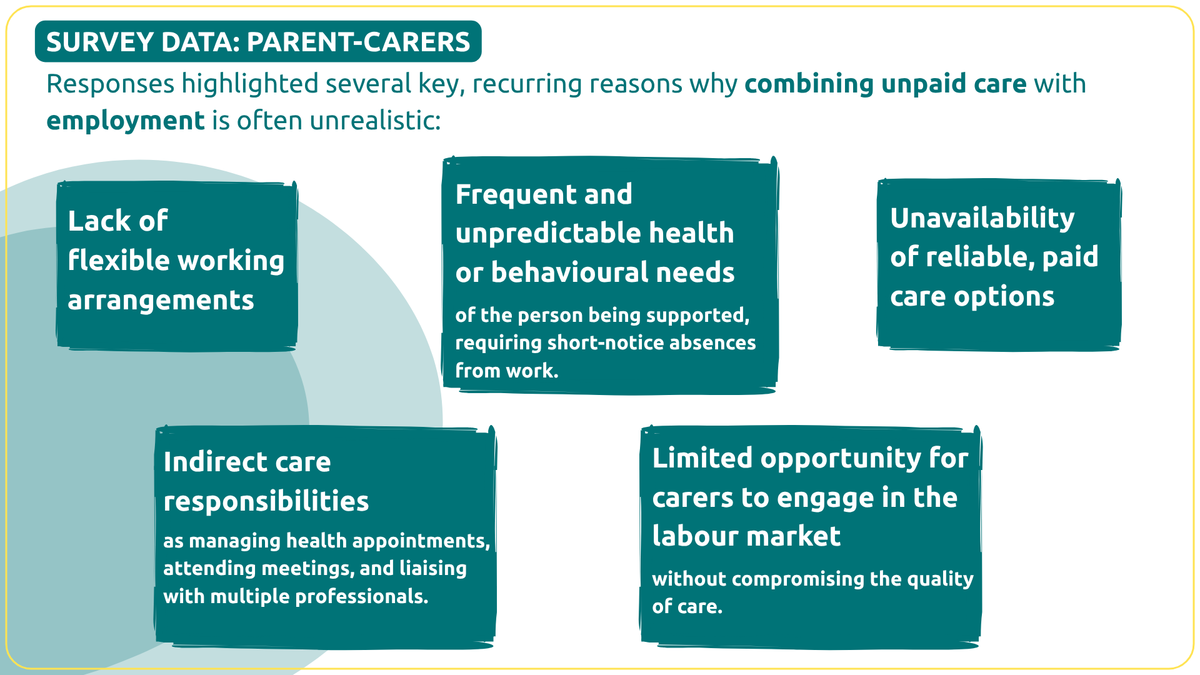
As highlighted by the Mental Health Foundation (2016), poverty increases the risk of mental health problems and can be both a cause and consequence of poor mental wellbeing.
If PIP reforms result in individuals with anxiety or depression losing their entitlement to support, it is likely their conditions will worsen. Not only will this harm individuals, but it will also place further pressure on an already overstretched and underfunded NHS mental health services.
Support must be person-centred and based on trust
While we welcome the Government’s intention to make it easier for disabled people to try work without losing benefits, that principle must be protected by clear guidance and a system people can trust. Support conversations should be offered, not imposed.
Making them a condition for receiving the full health element of Universal Credit risks increasing anxiety and creates a punitive culture. We do not believe people should have to prove their disability repeatedly to access the support they need.
Instead, support must consider the whole person, including housing needs, access to health care, and caring responsibilities.
We support the recruitment of 1,000 Pathways to Work advisers; however, with fewer than one adviser per town, this initiative is unlikely to meet the scale of need. Conversations about support should be compassionate, flexible, and tailored to each individual’s unique circumstances.
Safeguarding is not optional
Many of the proposals overlook the importance of safeguarding. We are especially concerned about the risk of harm from poorly communicated reforms, unfair reassessments, and cuts to vital support. A robust safeguarding framework must be at the core of any reform, beginning with enhanced communication.
The current system often fails to meet the needs of those with complex or fluctuating needs. Safeguarding requires a commitment to personalised care, ringfenced local authority funding, and investment in accessible health and social care.
We call on the Government to halt the Universal Credit and PIP Bill until these safeguards are in place.
Young people need support without delays
Several proposals could have a devastating impact on young disabled people and care leavers. One such measure would delay access to the Universal Credit health element until the age of 22.
This delay would leave many young people without the financial stability necessary to transition into adulthood, especially those already ineligible for PIP between the ages of 18 and 21.
We also believe that the current move to adult benefits at 18 is too rigid. Many disabled young people are still in education or undergoing vital health assessments. A gradual, supported transition with tailored advice and an ‘active offer’ of independent advocacy would better reflect the reality of young people’s lives.
Caring is often a full-time job
Carers of people with high support needs must also be recognised in welfare reform. Our parent-carer survey found that many carers struggle to balance their caring responsibilities with employment.
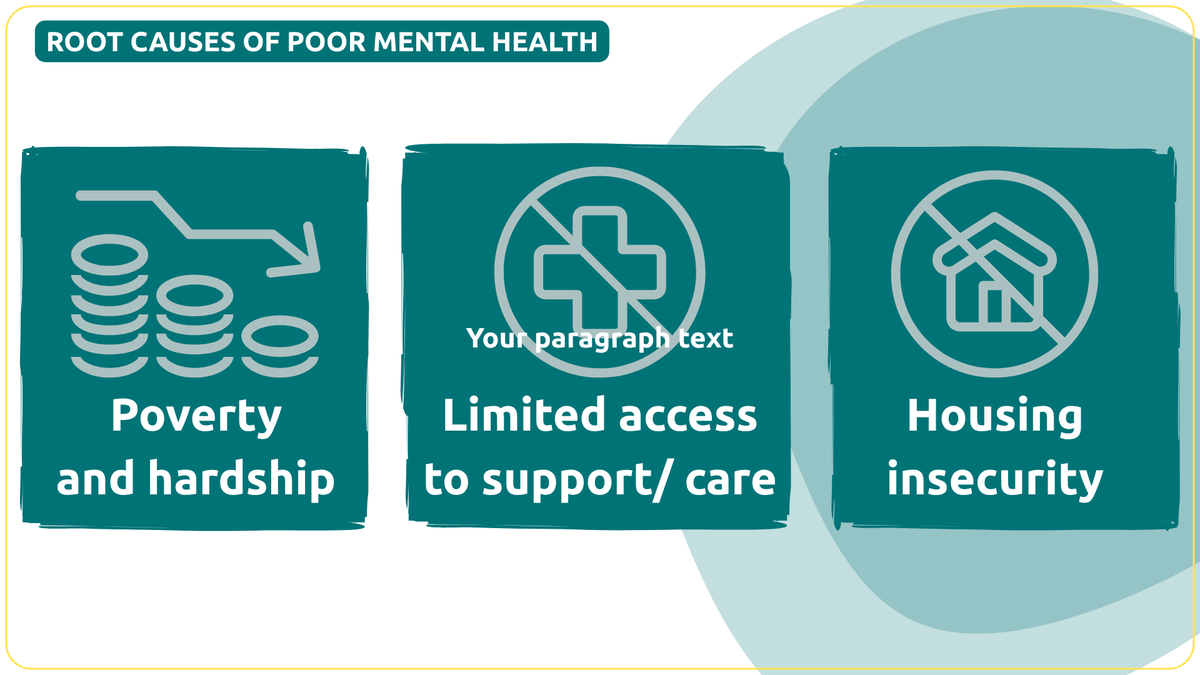
Employers need better support
We must ensure that disabled people and carers who want to work are appropriately supported to overcome the many barriers they face. Many employers lack the confidence or knowledge to support disabled staff effectively.
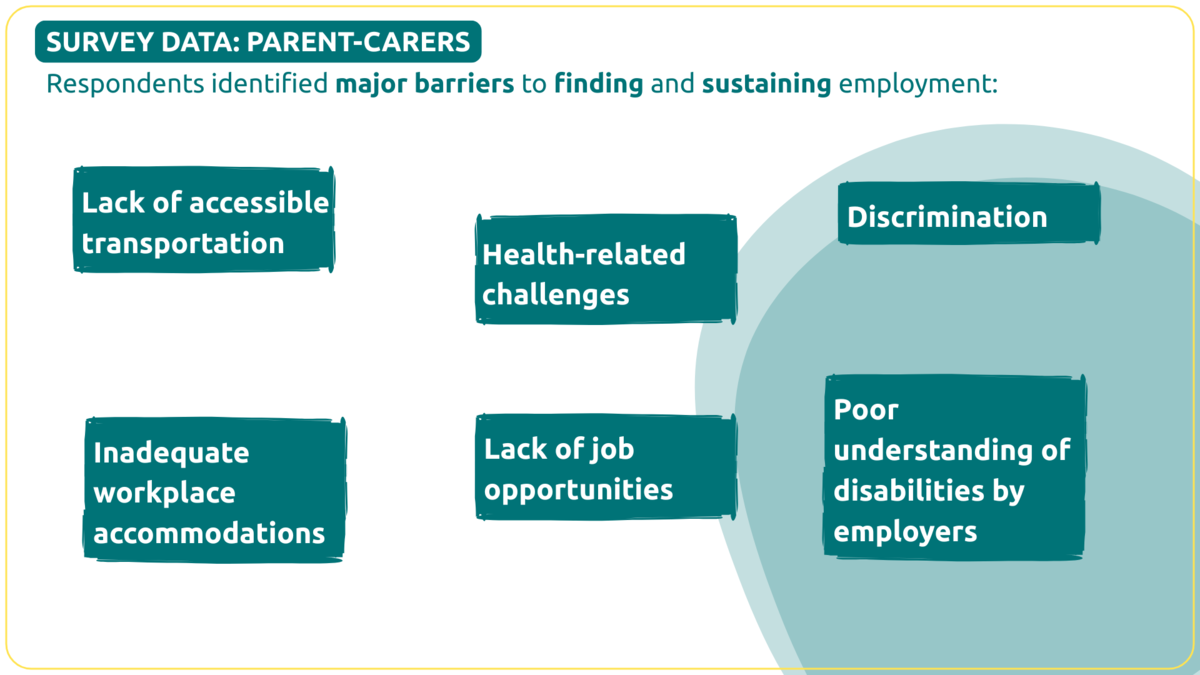
We recommend that the Government fund workplace adjustments directly where needed, expand the Access to Work scheme, and provide step-by-step guidance for line managers. Mental health support and flexible working options should be standard across all sectors. Crucially, all reforms must be co-designed with disabled people and their caregivers to ensure they are practical and inclusive.
Conclusion
Reform should never increase poverty. It should break down barriers, not build new ones. The welfare system should empower people, not punish them. Reforms must be compassionate, co-produced, and centred on dignity and equality. At Together Trust, we are calling for a fairer approach that supports disabled people, their families, and carers to live safe and fulfilling lives.
Stay informed about our work by:
Signing up for our campaign updates
Checking our website news


